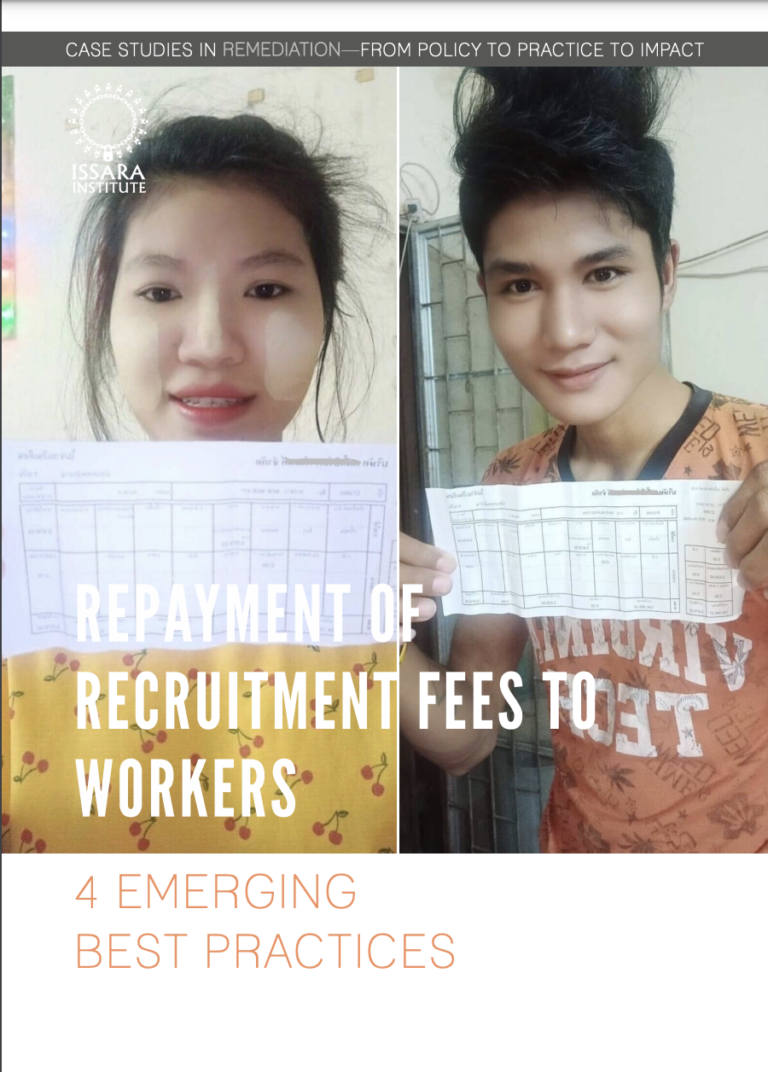Issara Institute, founded in 2014, has been working on advancing more ethical recruitment practices within supply chains since its founding, including work on aspects of ethical recruitment such as more transparent, ethical terms of engagement, more ethical and professionalized conduct on the part of employers and recruitment agencies toward each other and toward workers, and monitoring and verifying true labour recruitment conditions through worker voice. Two seminal investigations in 2018 outlined a feasible financial model for ethical recruitment in Southeast Asia (and technical approach for creating such models, and emerging signals of behaviour and systems change on the part of recruiters, suppliers, and jobseekers from implementation of Issara’s worker voice-driven ethical recruitment programming

